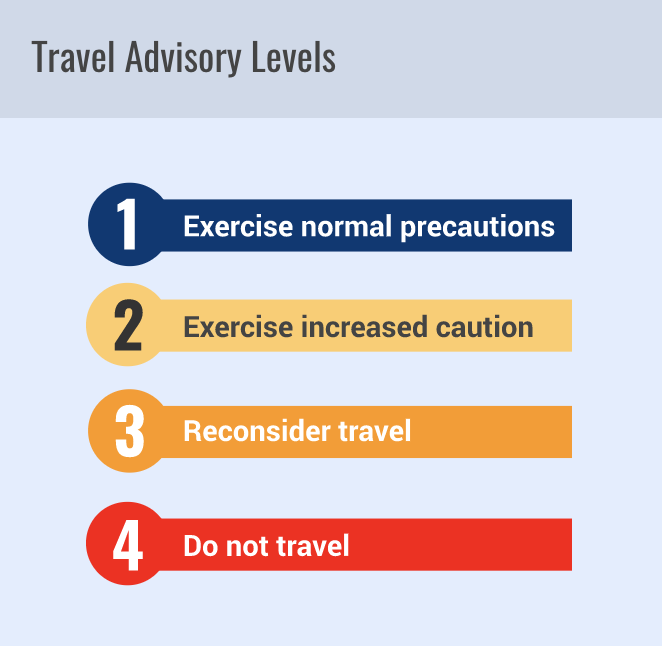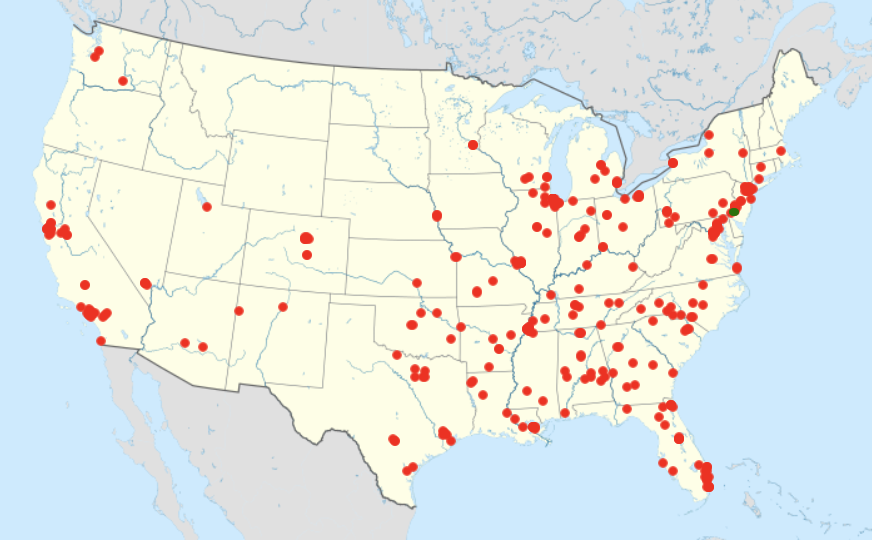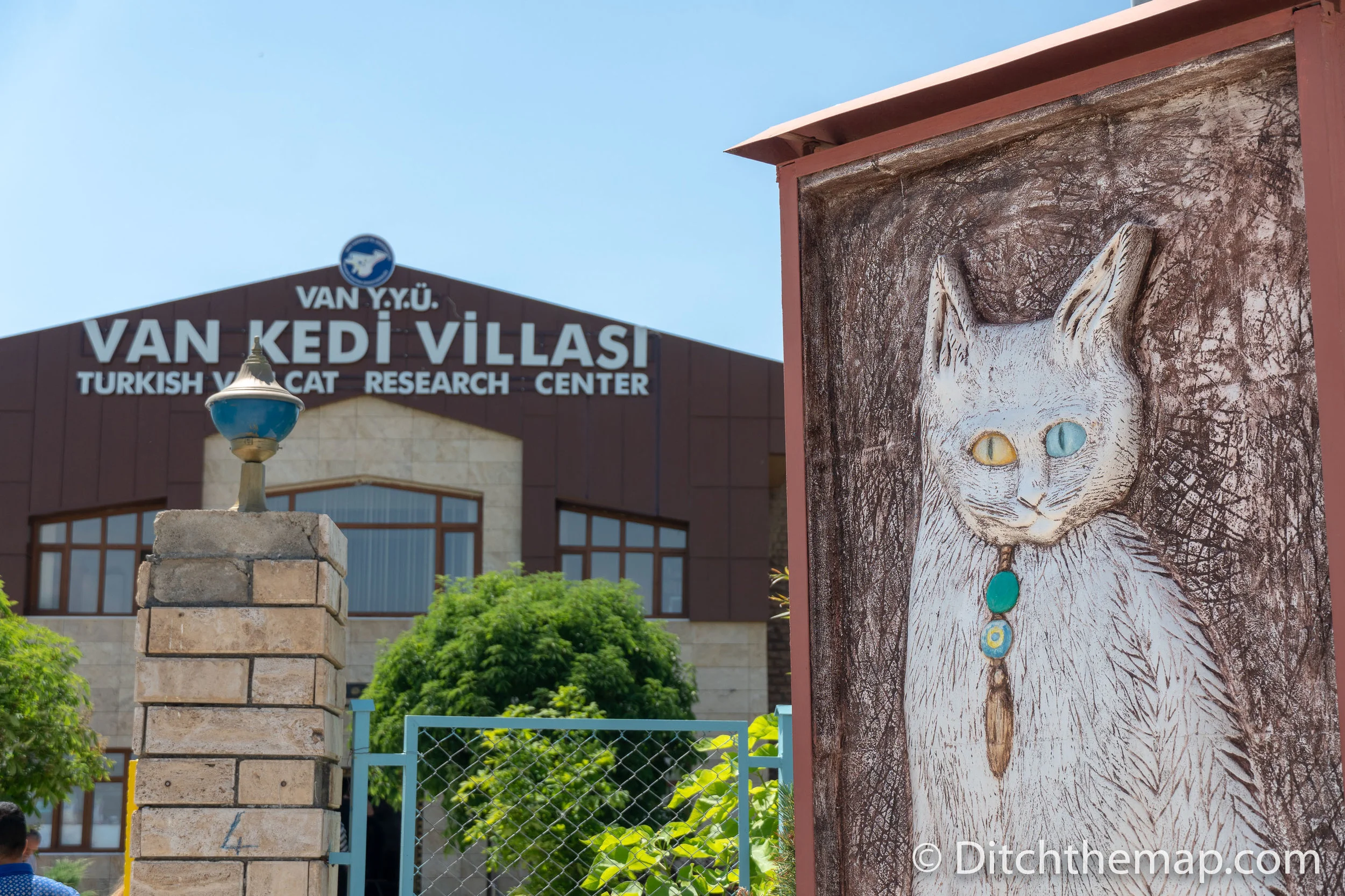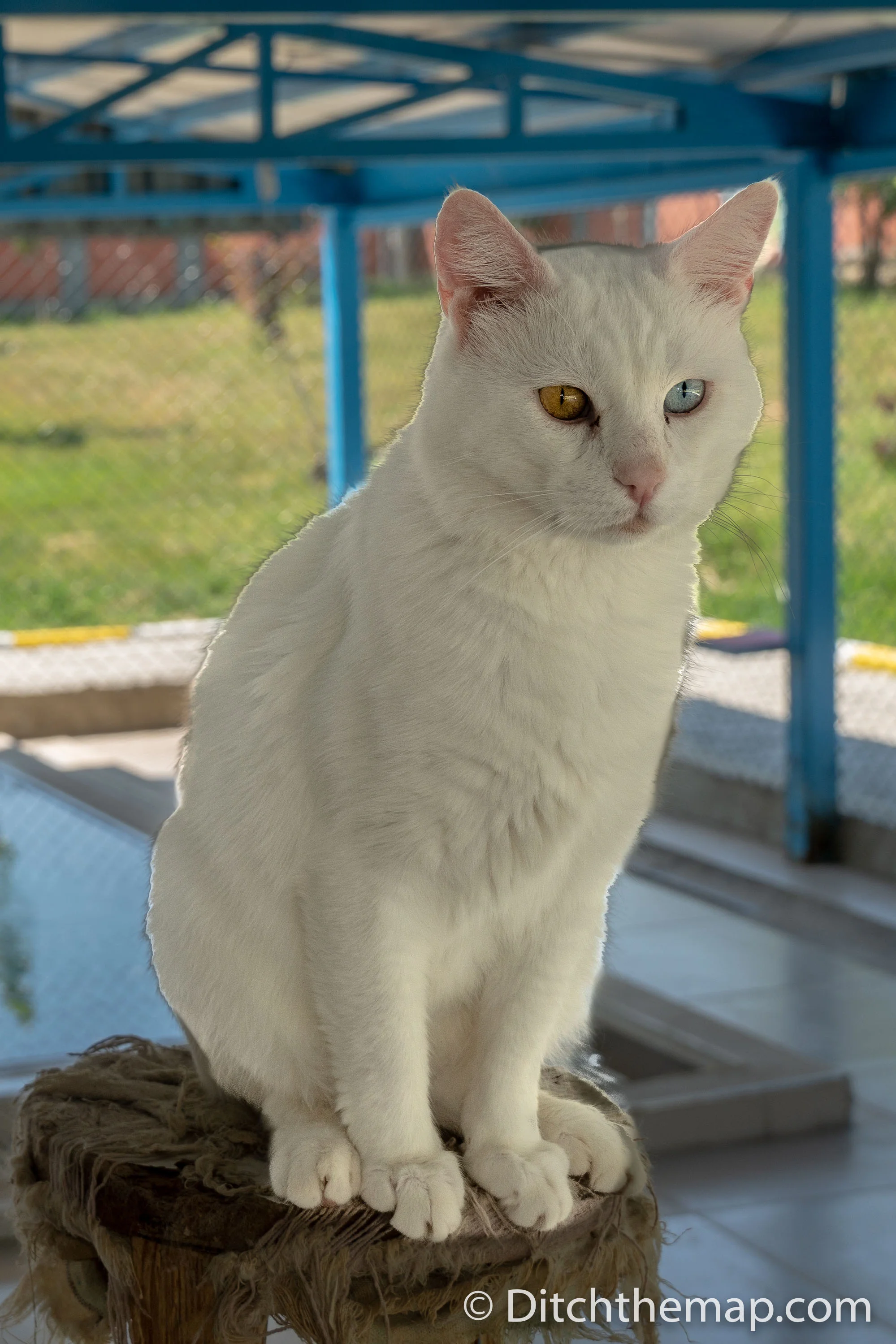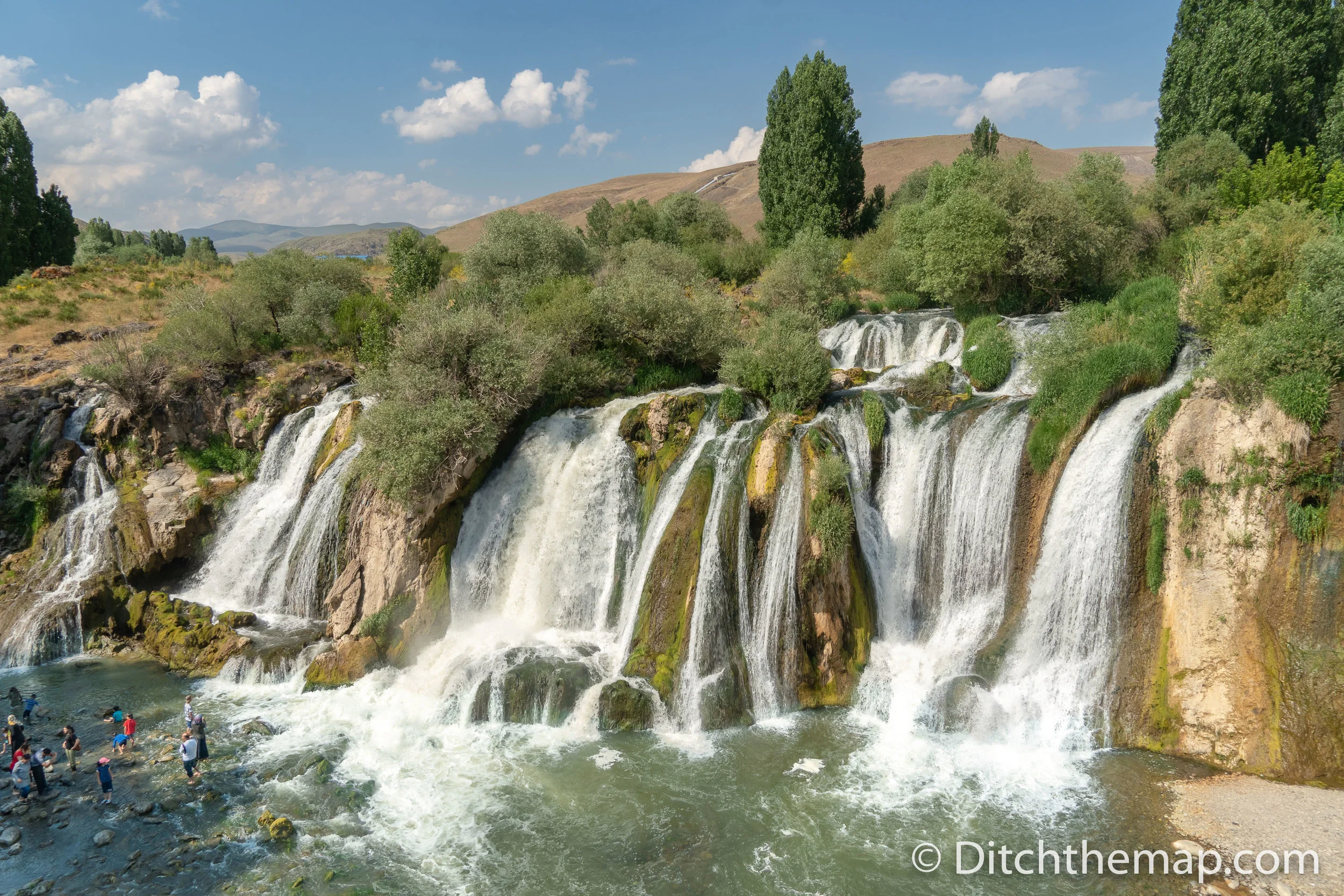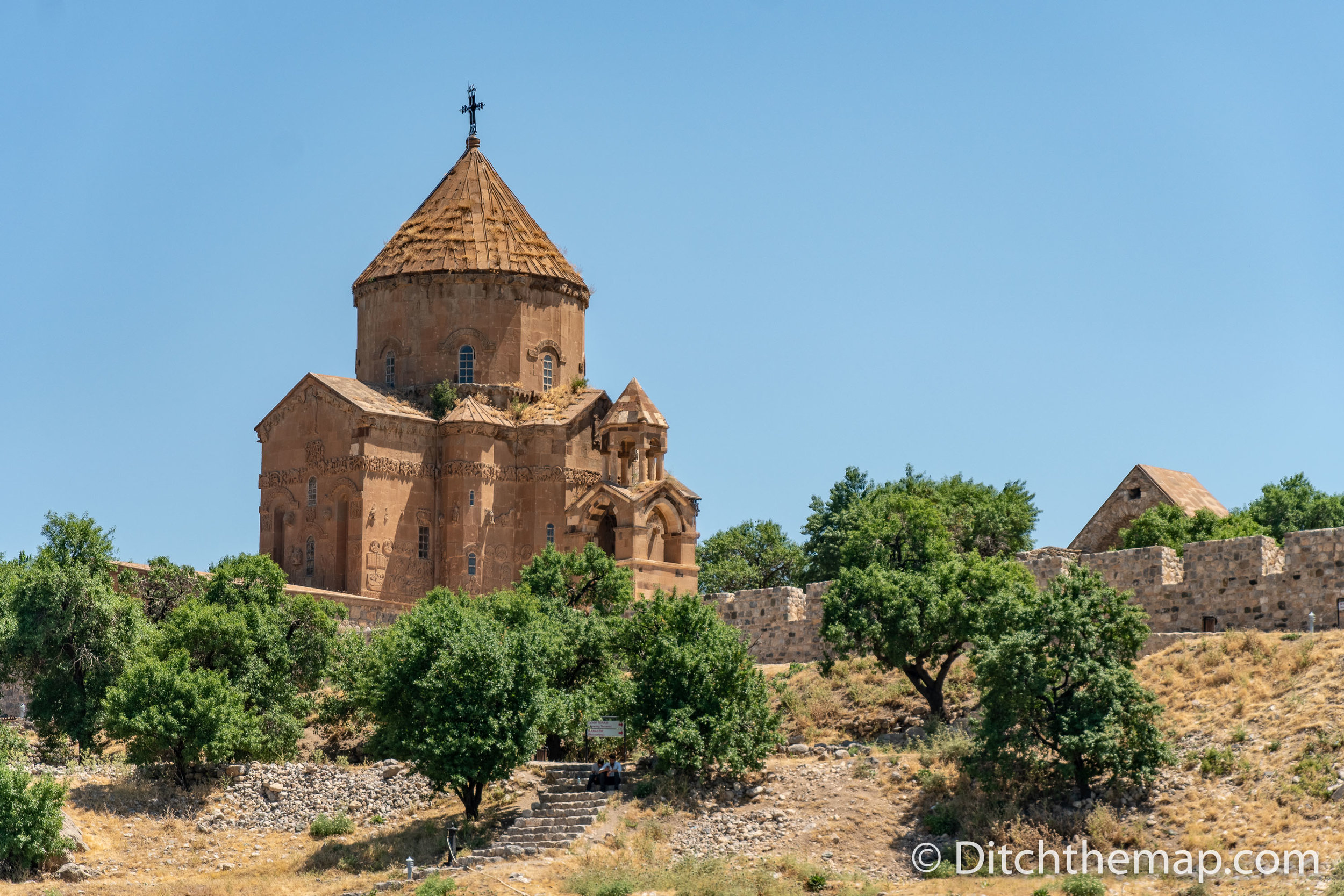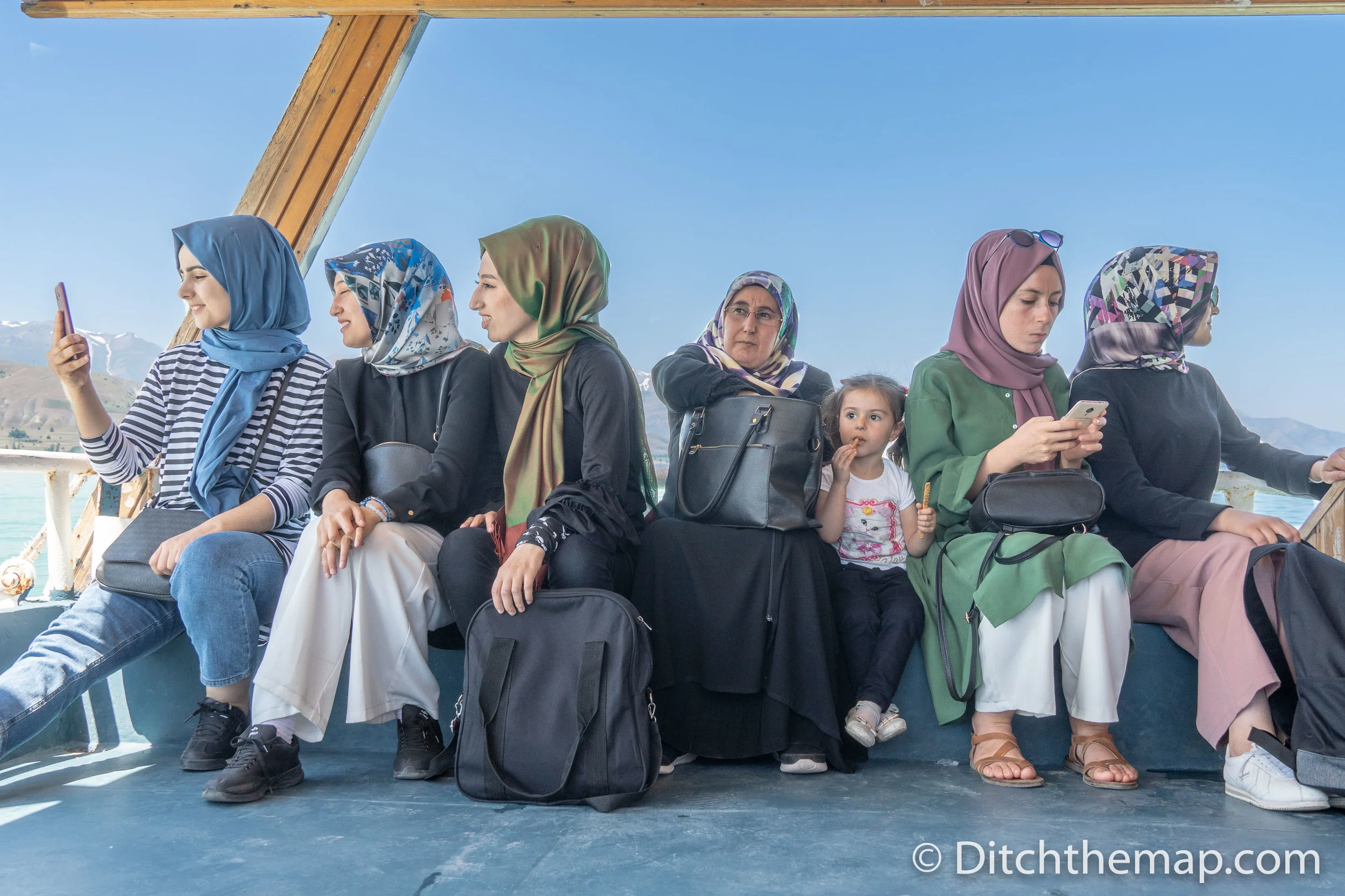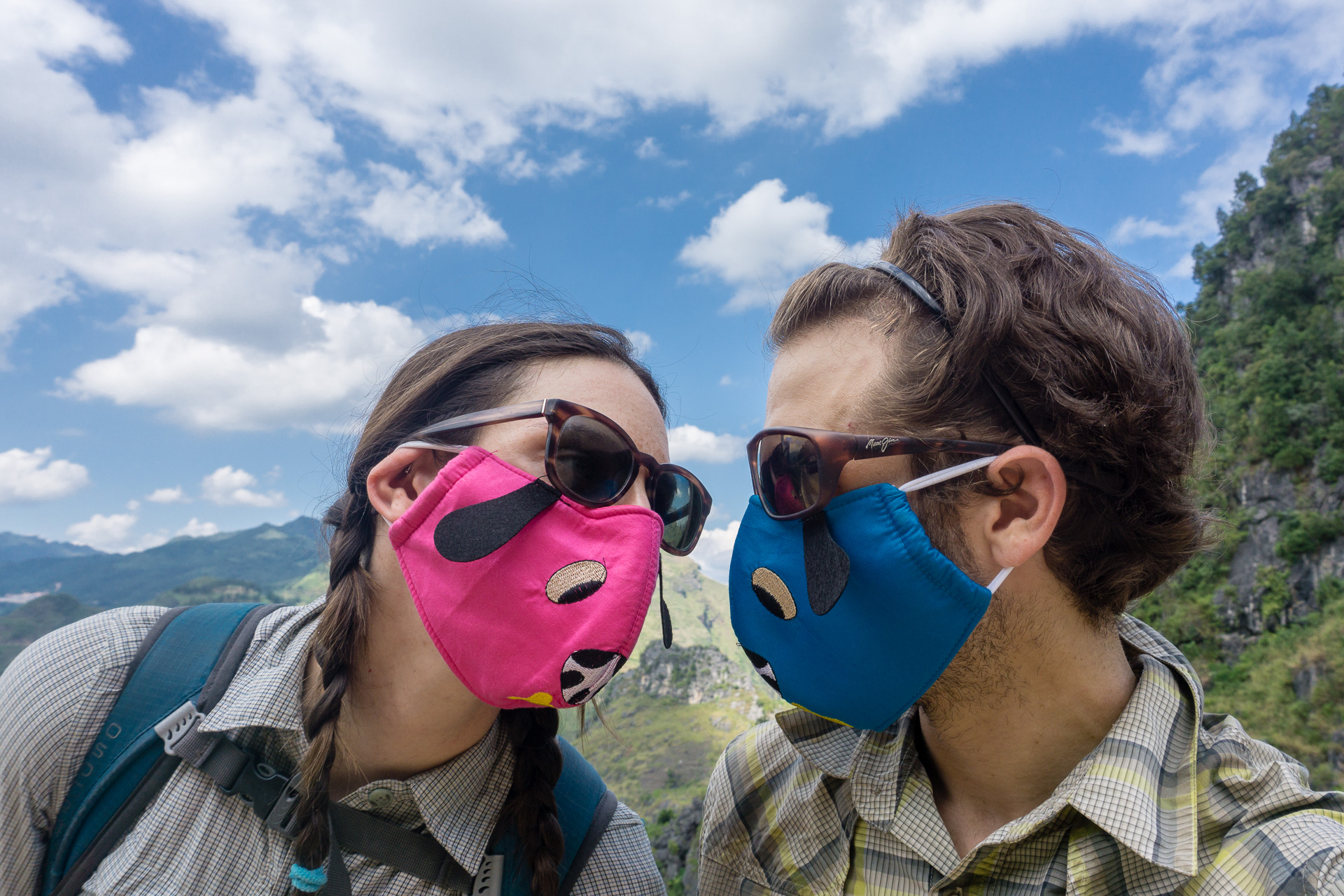Van - Don't Miss this Kurdish City in Eastern Turkey - Staying with Locals
/Arriving in Van, Turkey
After 18 hours in cramped and nearly upright seats we groggily disembarked, mid-day, into the sunny city of Van, the capital of Turkey’s Van province. This eastern province, situated near Iran and Armenia, is home to a large Kurdish population. The cultural, ethnic, religious, and dynastic history spans thousands of years and is worthy of an entire article in itself, but this article will focus solely on our experience and observations. This is a good site if you want the history of Van, Turkey.
Safety (is it safe to travel there?)
According to the State Department, as of June 2019, the US advises against travel to Turkey. They rate most of Turkey with a safety risk of 3 out of 4, which means: reconsider your travel plans. They give a blanket rating of 4 (Do Not Travel) to all areas near the Turkey/Iraq and Turkey/Syria border. This seems foolish and unfounded. It is basic fear mongering and I find it shameful. There have been no attacks directed towards tourists for years in the south of Turkey. Also, the prior altercations have been between the Kurdish PKK militia and the Turkish government. The notion that anyone gives a flying f*** about Americans just tells you how self-important we Americans tend to get about world politics. Both sides could care less about an American tourist. I cringe when people say, “aren’t you scared because you’re an American?” or “don’t tell them where you’re from” or “it’s not safe there” - their version of “there” referring to “that place I know nothing about but listen obediently to what my bias-filled news/television tells me.”
US State Department’s Travel Advisory Taken from Website
US Travel Advisory Ratings
We will be traveling through the entire southern portion of Turkey. I write this as I sit at a cafe in the city of Mardin overlooking the Syrian border. Tomorrow we visit Dara, an archeological site less than 3 miles from the Syrian border. I am more worried about having enough sunscreen than anything else.
As a side note, there have been 184 mass shootings in the United States this year already (as of June 2019) where hundreds of innocent bystanders have been murdered and nearly a thousand injured. One of those shootings happened in our home town of Philadephia just a week ago at a graduation party where the shooter fired "indiscriminately into the crowd," less than half a kilometer (quarter mile) from our home. So, can it be said that my native America is perhaps more dangerous? The map below shows the location of all of the mass shootings in America for the year of 2018. The green dot is where we lived - right in the middle of a war zone!
Mass Shootings in American during 2018 - "Mass Shootings in 2018". Gun Violence Archive
Initial Impressions of Van
After a few failed attempts, we finally made it to the city center via dolmuş (public minibus) thanks to the incredibly friendly and helpful locals. We were instantly enamored by the city’s energy - men hawking fruit, shop owners selling baklava, and market vendors vending. Stepping off of the main road is where we felt the magic. Old men clustered around knee-high tables drinking cay (tea) smoking cigarettes and playing dominoes and backgammon. We came across one modern-looking alley where younger crowds congregated. They laughed and enjoyed each other’s company over kunefe and dondurma. The dondurma, Turkish ice cream, was so thick that it was served on a flat plate along with a fork and knife. Later we asked why a spoon wasn’t used and were told that the spoon would simply bend. Women in this particular alley showed their hair, but elsewhere in the city many women donned head scarves.
It was important for us to couchsurf in ‘off the beaten path’ parts of Turkey since we have felt that most cities we’ve visited so far are tailored to tourism. We found a lovely couple to host us for three nights but still had few hours to kill before meeting our them so we wandered around the city. We walked to a few hamams, public bath houses, which were very difficult to find as most were hidden inside large aging buildings somewhere in the back without signs or other locating information. Our perplexity must have been painstakingly clear since as many people tried to help us - one family going to great lengths. They attempted many times to help but we just stared at them as their foreign tongue remained unintelligible. They continued to try and it seemed to take them a little while to get the message that we didn’t understand Turkish at all. Even after their failed attempt to communicate they continued to glance back at us while walking away - as if leaving us in distress was causing them great discomfort.
We sat for lunch and enjoyed bread, salad, bulgur, çorba (soup), and ezme (tomato dip) setting us back 16 lira ($2.75). We were astonished because this much food would have cost us almost 3 times as much in the ‘more touristic’ portions of Turkey.
As we continued our aimless stroll with our large packs on our backs and smaller day bags straddling our chests, we heard small children giggle the heavily accented word ‘tourist’ to their parents after sighting us. People craned their necks and did double takes the moment they heard us speaking, surprised by such a foreign sound. We sat for a couple of glasses of tea, which the restaurant “gifted” us for free when we asked for the bill. Our next stop was a lokum (Turkish delight) shop to buy a present for our hosts. The entire staff stopped their tasks and nearly fought at the opportunity to help us. Using their phones, they asked where we were from and when we said “America” their faces lit up. The eager and attentive service provided by all 6 made us feel like celebrities.
While waiting to be picked up by our local hosts a couple of young men stopped to talk to us using their simple English. Like the throngs of other people that passed these men took a curiosity in us. They asked about our travels, where we were from, and and a slue of other questions. At this point it was obvious that any type of international travel to Van was effectively nonexistent. English is reserved only for the college educated professionals in the city and only some of them. The men were intrigued by couchsurfing when our hosts, having since arrived, explained to them why we were waiting for them.
About our Hosts
Our male host had hosted several time before getting married and after 3 years of married life he wanted to introduce his lovely wife to the joys of couchsurfing. We were the couple’s first guests. She loved the experience and said she couldn’t wait to host again. He was a civil engineer and she worked in a hospital as a midwife.
Couchsurfing Hosts
New Foods
We were delighted to try a bunch of new foods unique to the Van area. The mingling of Kurds, Armenians, Assyrians, and Turks is reflected in the food. Due to the blending of cultures I cannot say with certainty the origin of specific foods but will guess many come from Kurdish traditions. Also it’s important to note that Kurdish cuisine/culture differs among Kurds living in different countries.
Our Dinner
Our hosts wanted to show us a traditional dish originating in the nearby province of Etzurum. Essentially every kebab joint in the city (along with most other cities) serve only one dish—their specialty. You sit down and simply say “I will have 2”…but you say this in Turkish as they surely do not speak any other language.
The dish, Cag Kebab, is prepared by twice grilling marinated lamb. Mezzes—usually a salad, a dish of peppers, ezme, and pickels—are regularly served alongside meals at no cost. Although possible this custom is uncommon in more touristic locations.
Ayran is the drink of choice with a meal. It is watered-down yoghurt served with a pinch of salt and packaged in plastic containers. Ayran is as ubiquitous as water and can be found everywhere you can imagine. We split an ayran between the two of us. Many kabab restaurants make their own, which I found to be quite impressive given that most people in the states would balk at the idea of fermenting their own milk. I wonder if the Kurds drink Ayran more than the rest of Turkey since their diet is more heavily based on milk products - food for thought?
Another unique food found in southeast Turkey is known as şalgam, a salty bright red concoction of fermented black (or purple, or red) carrots served up best with some added pepper juice. This unsweetened beverage, which we sampled from a branded bottle, is typically homemade and garnished with carrots much the same way a bloody marry is with celery.
On our last night we sat down at another kabab joint that, like all the others, specialize in just one type of preparation. We sat down and our hosts ordered a couple portions of Çiğercisi, fried liver kebab. This regional specialty typically only found in Diyarbakır was served alongside both cooked and raw onions, tomatoes, peppers, parsley, lemon, and a special type of Armenian bread known as Lavash.
Kurdish Kahvalti (Breakfast)
Cheese, cheese, yoghurt, butter, some more cheese, white bread, and buttered cheese. Well, that may be an oversimplification, but you get the idea—Turks and Kurds have so many types of cheese. The Kurds were nomadic until as recently as the 19th century and therefore never developed permeant agriculture. Thus, their cuisine is largely based around milk, cheese, yoghurt and lamb. Our hosts spent an hour preparing and serving up a traditional Kurdish breakfast while their adorable pet rabbit scampered about their apartment. What they didn’t make themselves they no doubt bought from local villages nearby.
Enjoying a Traditional Kurdish Breakfast in Van, Turkey
As is typical, our breakfast was served on tiny communal breakfast plates—the following is what you can expect in a traditional Kurdish breakfast:
bal Kaymak - The gentle curl, or perhaps rough smudge, of this Turkish version of clotted cream sits smugly in its bath of ‘bal’ (turkish for honey), knowing full well it’s the most desired item on the table. Traditionally made with buffalo milk. The honey is also regional and available year-round.
Otlu Peynir (Herbed Cheese) from Van - Semi-hard with a salty flavor, but the majority of the flavor comes from the incredible amount of herbs that are put in, many of them local and endemic to the Van region of Turkey
Taze Kasar - Smooth firm un-aged chow cheese
Cacik – The Turkish equivalence of the Greek tzatziki
Yoghurt - What we call “Greek Yoghurt’ is actually Turkish yoghurt. Branded as “Greek” companies felt it would sell better than if they called it by its true origin, which is Turkish.
Fried eggs
Hard boiled eggs
Fresh bread
Tahini with Grape Molasses - In Turkish, Tahin Pekmez, can be thought of as the The Arabic (and Turk, and Kurd) PB&J.
Cherry Jam
Tomatoes, cucumbers, peppers, black olives
Semolina Halva (İrmik Helvası) - A sweet grainy paste made from bulgar flour and sugar and sometimes milk
Tea
Tourist Attractions around Van
Visiting Van Cats
The Turkish Van Cat is a semi-long-haired breed of domestic cat, which was developed in the United Kingdom from a selection of cats obtained from various cities of modern Turkey, especially Southeast Turkey. The cats are being saved from extinction by a project at a nearby research center affiliated with the university. The center is open to visitors and we enjoyed playing with the lively cats. As you can tell from the photos many of the Van cats have heterochromia, or different color eyes. It was worth the 20-30 minute drive from the city center.
Van Cat Research Center
Van Cats Have Two Different Color Eyes
Van Cats Have Two Different Color Eyes
Russian Market
There is a market in Van called the Russian Market. It’s a great place to fine cheap stuff but it’s mostly imported goods from Iran and China. We were in and out in 15 minutes.
Muradiye Selalesi (Waterfall)
Take a 75 minute drive north east from the city center and you can see one of Turkey’s Most Beautiful Waterfalls. Just 20 miles from the Iranian border this waterfall is visited by many young couples and families. You can stroll down to the water or sit on the lawn enjoying a picnic and tea.
Muradiye Selalesi Waterfall 20 miles from the Iran Border near Van, Turkey
Akdamar Island And The Last Armenian Church Of Lake Van
Take a 40 minute drive west of the city and then hop onto a ferry to explore Akdaman island and visit the Last Armenian Church Of Lake Van. “Today Van is a city that today is predominantly inhabited by people of Kurdish descent. It was not always so however. Before the Kurds and the Turks, this was part of older Armenian Kingdoms, and until the harrowing events of 1915, and the forced exodus of the Armenian people, it remained a hugely important centre of Armenian culture within the Ottoman Empire.”
We Stand in front of the Armenian Holy Cross Cathedral on Akdamar Island in Lake Van
During our walk around the island our couch-sitting hosts jumped onto each-others backs to pick some almond fruit for us to try. Unfortunately the fruit was not ripe yet.
Enjoying the Lovely Kurdish People of Van Wherever We Went
Throughout our entire stay in Van (3 nights) people would stop and smile when they saw us. We stuck out like a sore thumb! Most of the people didn’t speak English but every once in a while someone would ask “where are you from?” in plain and heavily accented English. When we responded “America” their faces would light up and we could tell we were probably the first Americans they have ever met.
Women Waiting on Ferry to Akdamar Island
Swimming in Lake Van
Out hosts took us to a remote areas on Lake Van where we swam for a while in the cold but refreshing lake. It was every so slightly salted and quite alkaline, which made the rocky floor slippery. While the sun dropped in the sky and we dried off we ate the prepared snack they had brought for us - fresh melon and two types of cheese.
We Enjoy a Swim in Lake Van, Turkey
Enjoying a Snack with Our Friends at Lake Van, Turkey
Tea Party
During our last night we joined our hosts for a tea party hosted by one of their friends. There were 7 of us in total. They work together as engineers and spend their weekends together. We stuffed our bellies, even though we had just come from dinner, as to not be rude. The food was prepared fresh just for our visit. Have I mentioned how extremely welcoming the Kurdish are? We ate homemade borek, a Japanese cheesecake, and two other dishes I cannot recall.
I was a bit surprised to learn that we were the first Americans that one of the men had ever met — he was an engineer educated in University and was from the capital city, Ankara. We spent nearly 3 hours discussing politics, religion, and nationality. We were asked if we owned guns, which I thought was funny though quite telling question. We heard about the oppression of the Kurdish people living in Northern Kurdistan and their struggle to teach their language in schools (public or private). We talked about what it meant to be Muslim, relations with other religions, and what people do for fun. Since Van is a small city they said that people just drink tea (rarely alcohol) and spend time with friends for fun.
We got onto the conversation about marijuana, alcohol, and prisons. They held no judgement despite their strict beliefs against the substance. They went on to say that small drug use is not heavily policed but dealing or selling is dealt with harshly. I asked if they had seen “Midnight Express”, a mostly factual account of the cruel treatment received by an American tourist caught for attempting to smuggle hash out of Turkey. They had not seen it, but did not seem overly surprised. They explained that “of course some horrible things happen but that it’s not typical.” I thought to myself “wow, I wonder if Americans are this self-aware.” I quickly thought about police shooting black men, senators killing and disposing of sex workers, and individuals getting life in prison for committing victimless crimes. They went on to ask if it’s true, what they see about American prisons. I told them it’s 100% accurate but many high-security prisons that do not allow cameras inside and are likely even worse. They cringed and said that prisons in Turkey are much better than in America and they were all in agreement saying “[they] would hate to be in an American prison!”
It was an amazing and a once in a lifetime experience talking openly with these kind and gentle people in this small eastern city in Northern Kurdistan, Turkey.
Kurdish Wedding
While walking the streets we stumbled across a Kurdish pre-wedding ceremony. A Mercedes parked outside a building waited for the call to prayer to finish and then a band played while the bride-to-be exited the car and walked into the building. Kurdish women traditionally only wear heard scarves after they are married.
Summing Up Our Experience
It would be an understatement to say that our time in Van was amazing. It was a once in a lifetime experience. Any trace of stereotypes I once held have since been completely obliterated. The culture is beautiful, open, and accepting- they greet one another with hugs and kisses and affectionate male friends hold hands and openly embracing their friendship in public.
The kindness, generosity, compassion, and curiosity we experienced in Van truly touched our hearts in ways that will not soon be forgotten.



